
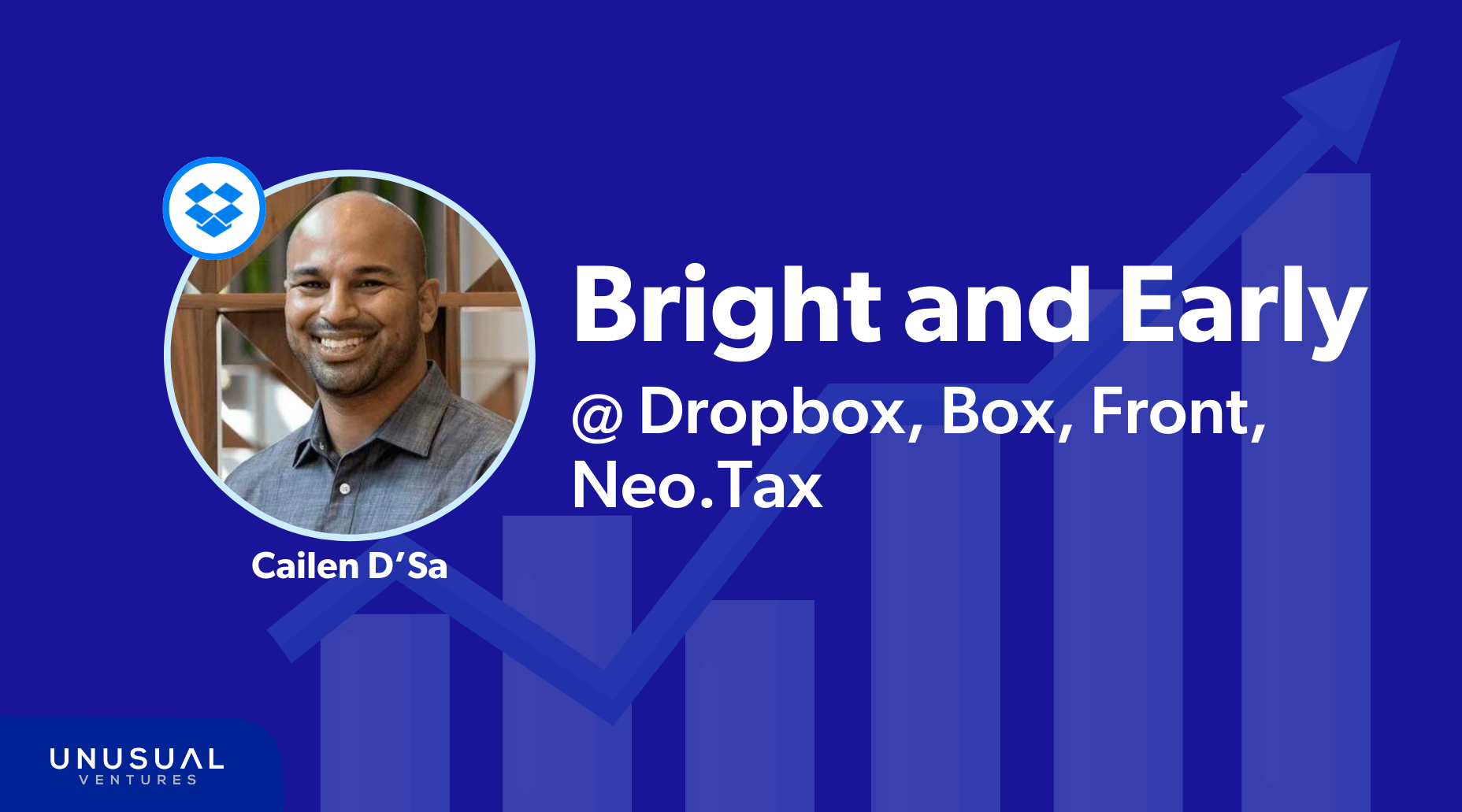
Cailen D’Sa is known in the Valley as a go-to guy for building sales pipelines from startup to scale, and for good reason. He was the first GTM hire at Box, pre-product, who landed landmark deals with MTV Networks, Disney, Harley-Davidson, and more, and ultimately helped Box survive the 2008 market crash.
In 2010, he made a bold jump from Box to lead sales for the competitor, Dropbox, where he acquired the first 1,000 customers and hired the first 15 sales and account managers. From there he’s helped founders grow from zero to $1B in ARR at Retool, Front, and Productboard among others. Now COO of Neo.Tax, Cailen describes his “Lombard Street–like” career as a winding road that started at the first cloud file-sharing company. But hockey-stick growth isn’t the primary driver of Cailen’s career climb from individual contributor to executive leader. Building and motivating teams is.
Looking back to 2014 when Dropbox was among the hottest companies in Silicon Valley, Cailen had recently transitioned from head of sales to head of recruiting, when the company was a mere 300 people. People who’ve worked with Cailen describe him as a larger-than-life cultural leader who inspires from the minute you meet him. He’s a doer who leads by example, minus the ego, and can pivot on a dime if that’s what the company needs. No matter what role you interviewed for, Cailen painted a picture of how a job is merely a starting point. With entrepreneurial spirit, strong performers can chart their own paths. In other words, Cailen’s the kind of leader who attracts people and builds teams just like he attracts customers and builds revenue. The stuff of magic for early stage startups.
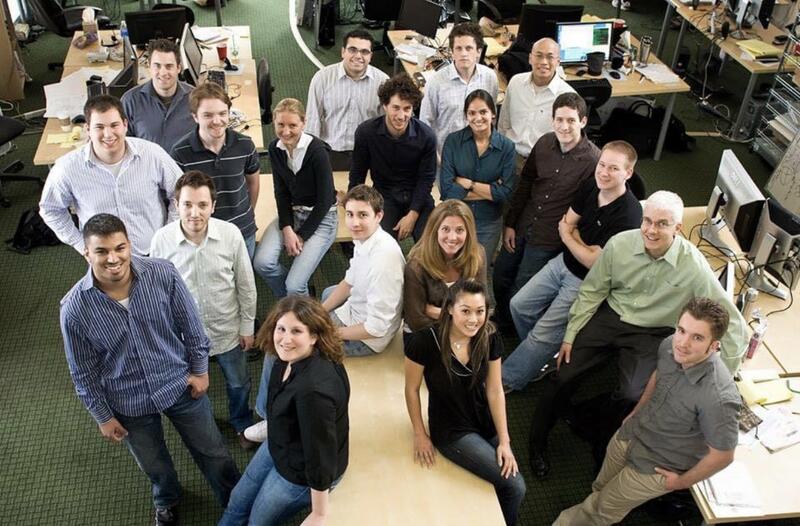
As a bright-eyed recent San Jose State grad, Cailen was happy to work in a garage for Box in Palo Alto. Conveniently, or perhaps not so conveniently, the office-garage doubled as the founders’ sleep space. “Their beds were on the floor next to my desk,” D’Sa says, reflecting back to 2005, when the company outgrew its adjacent work space.
After an incredible run at Box, why did he jump ship to work for Dropbox? (For early twentysomethings, a move like that is akin to leaving Instagram four years ago for TikTok.) The short answer: “I loved the product,” D’Sa says. In a story we’ll dig into in a minute, D’Sa got his hands on the Dropbox alpha and realized, “Holy smokes, this is what our customers are asking for everyday! The gap in our product at the time was the lack of desktop integration — Box was primarily web-based originally. But no shade on Box — they’re a great company and do have desktop integration now.”
After seeing Dropbox’s deep desktop integration — which made it seamless for even non-tech–savvy users to get their files into the cloud — Cailen didn’t think twice. He knew he could sell Dropbox. He also wondered who would win in the category — Google and Microsoft weren’t in the space yet and cloud content management wasn’t a thing yet.
In 2008, when Dropbox Co-founders Drew Houston and Arash Ferdowsi came to San Francisco to fundraise, D’Sa’s brother — who’d been in an early YC group with them in Boston — lined up dinner for the three of them. Back then, Houston and Ferdowsi focused on consumers and had no interest in building a B2B offering, which was Cailen’s forte.
Dinner went well, but they left saying they’d get in touch if Dropbox decided to work on B2B. Sure enough, D’Sa stayed in touch, and in 2010, they decided to launch a B2B product. Houston called D’Sa and said, “Hey, you should join us.” Dropbox was up to maybe 12 or 13 people at that point.
The rest, as you’ll read here, is history. “I felt really dirty not using my own company’s product on my personal computers,” he says. “But this was the moment where I knew that I needed to work for Dropbox if they gave me an offer.”
In this edition of our Bright And Early series, Cailen D’Sa talks about sales secrets, overcoming impostor syndrome, and his passion for hyper-growth.
Cailen D’Sa: My inspiration to work in tech startups and take big swings stems from my father, a tech entrepreneur and executive. I’m originally from Ottawa, Ontario, Canada, and he relocated us to Cupertino when I was 7 years old. He built a company during the semiconductor era. Then he held executive or founder roles at companies that were pioneering broadband internet, in the ’90s early 2000s. Growing up in his shadow, I got exposure to what it’s like to be an entrepreneur at startups.
During my adolescent years, I would constantly hear my dad talk to folks overseas — I didn’t know if he was a secret agent or what, but I was always intrigued. I thought, “He’s doing important business stuff.” There was something about being exposed to that early on that just seeps into your DNA.
Then, growing up in Cupertino, there were a lot of ambitious folks who wanted to start companies. I learned about entrepreneurship by virtue of going to a school in that area. My older brother is an engineer and was very motivated to work at startups early on. He was in one of the first batches of Y Combinator in Boston. When I graduated college, it seemed like that was the natural path to go down.
In that era, most people looked for jobs on Monster or Indeed, or at job fairs. I was running my own tutoring service in college. It started with just me going door-to-door, trying to drum up leads and business, going to PTA meetings. I already had a bit of that scrappy entrepreneurial nature. I also had friends who were college students at San Jose State, and they worked at Macy’s or the Tie Rack. They were smart engineers, so I figured the allure of self-gratifying work would resonate. I’m like, “Hey, instead of making $10 an hour, how would you like to make $25 an hour by leveraging your education?” I ultimately scaled it up to four tutors over time.
I used Craigslist to generate leads for my tutoring business and started looking for jobs there too. I had a couple opportunities, one at Cisco Systems, and an internship at a very large public company called Flextronics. I remember being in a cubicle for a summer and thinking, “Oh man, is this the next 50 years of my life?”
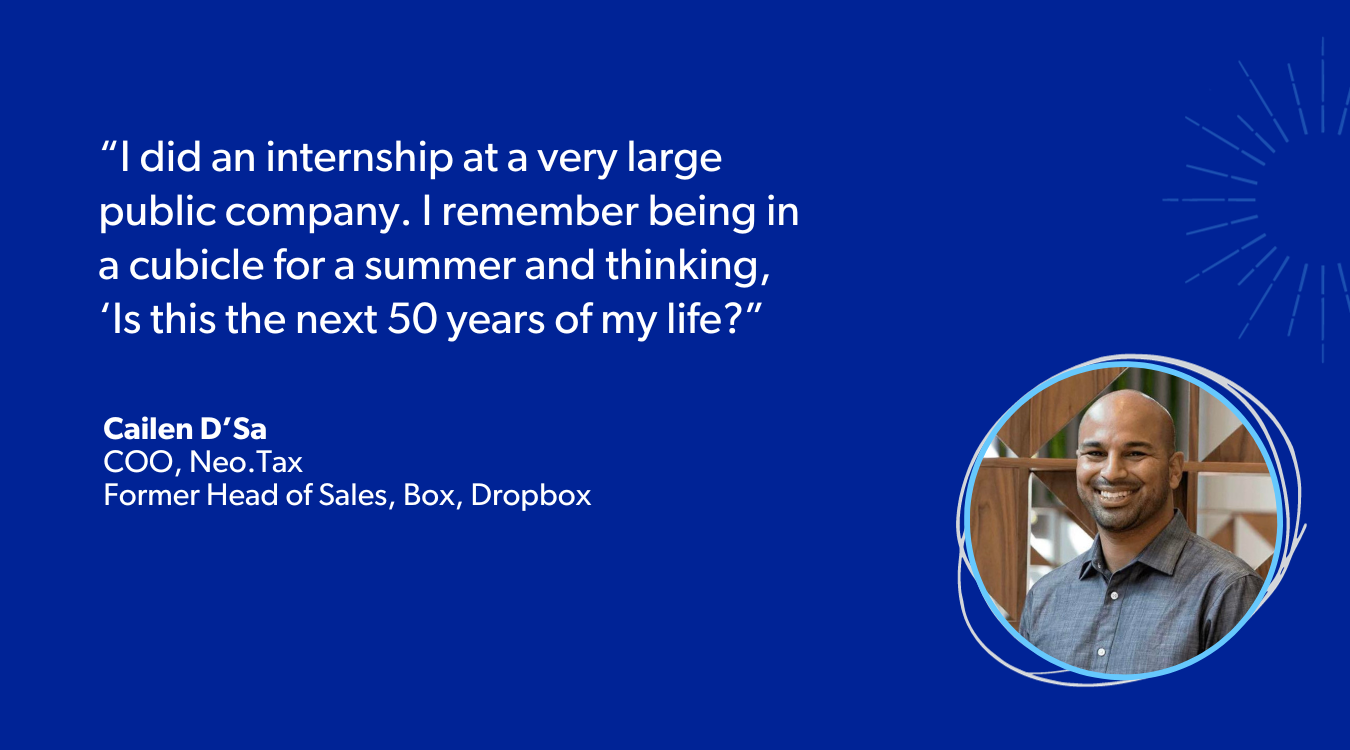
One job caught my eye because it mentioned the founders were college dropouts building a company to share files. I knew a bit about this from using zip drives and tools like FTP sites to transfer large files. I applied and got an interview with Aaron Levie, one of the founders and CEO.
I was so fascinated by the company and everybody who worked for Box — about 13 people at the time. Many were my same graduation year, so for someone like me, who I thought was super ambitious, I was more impressed that these guys had dropped out to build a cool internet company. I interviewed, and something I said compelled them to give me an offer — but I still don’t know what it was!
Cailen: Box uniquely hired a mix of engineers, product, and design folks who went to college with the founders. The early business folks were all pretty senior, like a head of BD and head of PR. We also had a COO type too. I sat next to all of them in a loft in downtown Palo Alto. The engineers were downstairs. Eventually they moved me to the garage given our headcount growth — they were running extremely lean at the time as well.
I learned through osmosis — how to use Salesforce, how to effectively think about data and tracking, how to build your sales model. I wasn’t nervous about getting on the phone as much as I was nervous about calling CEOs and CIOs. I thought, “What will they learn from someone like me who just came out of college? What wisdom am I going to impart on these folks?”
Getting over that mental hump was important, but so was drinking from the fire hose. How do you sell a product and make cold calls? Back then, LinkedIn was pretty nascent. How do you buy lists from Hoovers and call people through the phone tree and get through the gatekeepers? Trial by fire is how I learned.
Cailen: You have to take a lot of no’s to develop a thick skin. Make calls and understand that once you hang up, that person’s probably not thinking about you.
I still deal with impostor syndrome, 15 years later. Getting over the fact that people aren’t judging you after you get off the phone with them. More broadly in life, people likely are not judging or talking about you behind the scenes. They’re thinking about themselves and have their own problems to manage.
The second part is investing time, understanding the product, the category, the buyer, the space, and the problem set. Once you spend enough time becoming an expert, you realize that you know a lot more than some of the people you sell to.
A CIO or CEO has to have a breadth of knowledge, but they may not be an expert in a subset of that. Over six months, a year, eventually your knowledge becomes so dangerous that you know more than the folks on the other side of the phone.
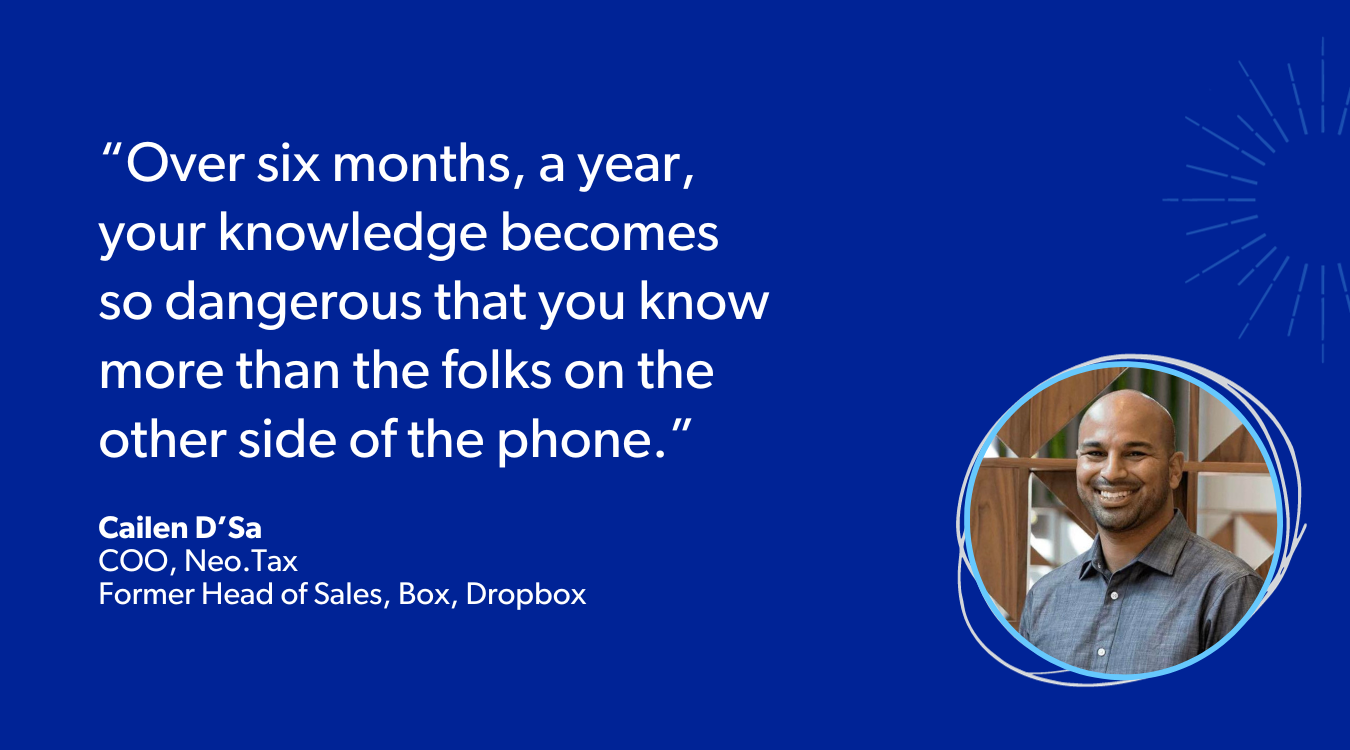
Cailen: Being one of the first GTM people, you develop confidence over time. I think in a sales role in particular, it’s very quantifiable goals. As an IC my first few years there, what you put in is what you get out.
I was very scrappy and coin-operated. We had a round-robin phone line that would go to 15 account executives. If one person didn’t pick up after 10 seconds, it would route to the next person because we wanted very quick SLAs. Everyone in the Box office in Palo Alto was on Pacific Standard time, but sometimes we’d have calls very early in the morning from Europe — 3, 4, 5 am. We’d also have calls after hours at 6, 7, 8, 9, and 10 pm. I learned very quickly how to route sales calls to my cell phone. I’d take calls from 3 to 6 am. I also did the same thing after 5 pm on my commute home.
I usually got more leads than everybody else for this reason. People were speculating: “What is this guy doing to be at the top of the leaderboard?” In hindsight, I regret not sharing my secrets during that time. After becoming a leader and having top performers who don’t share their secrets, I say, “Why don’t you share your secrets?” I’ve truly come full circle.
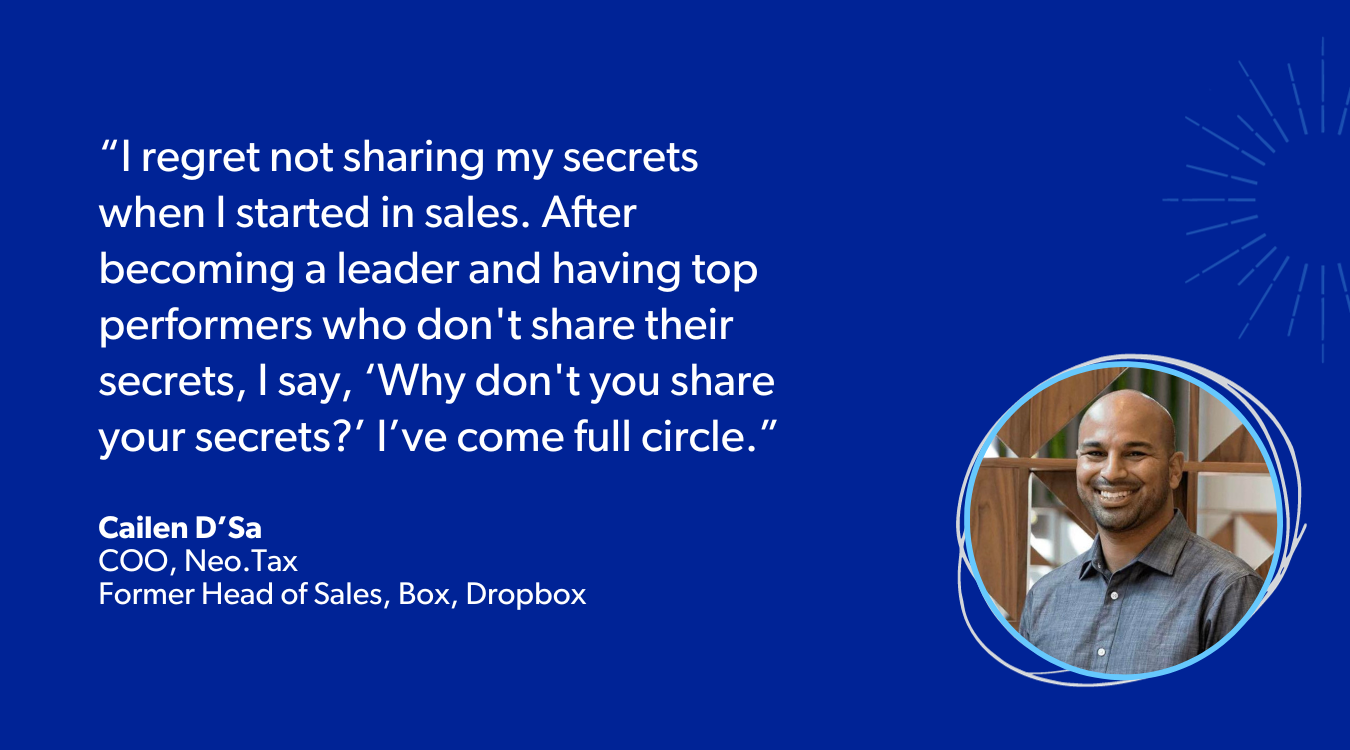
Eventually, we hired a sales director. I reported to a bunch of very seasoned folks who had seen hyperscale before. Once I got to that place, I was like, “I’ve seen what it’s like to build an org from scratch. I want to do this on my own and take on more of a leadership role.” That’s where the segue eventually led to Dropbox — I found it alluring that they were starting from scratch again. Going back to zero again seemed enticing.
Cailen: According to my therapist, I’m a borderline psychopath. I’m wired in this weird way — I enjoy the pain and suffering of building companies. Jokes aside, in reality, I love a blank canvas and things that haven’t been figured out yet.
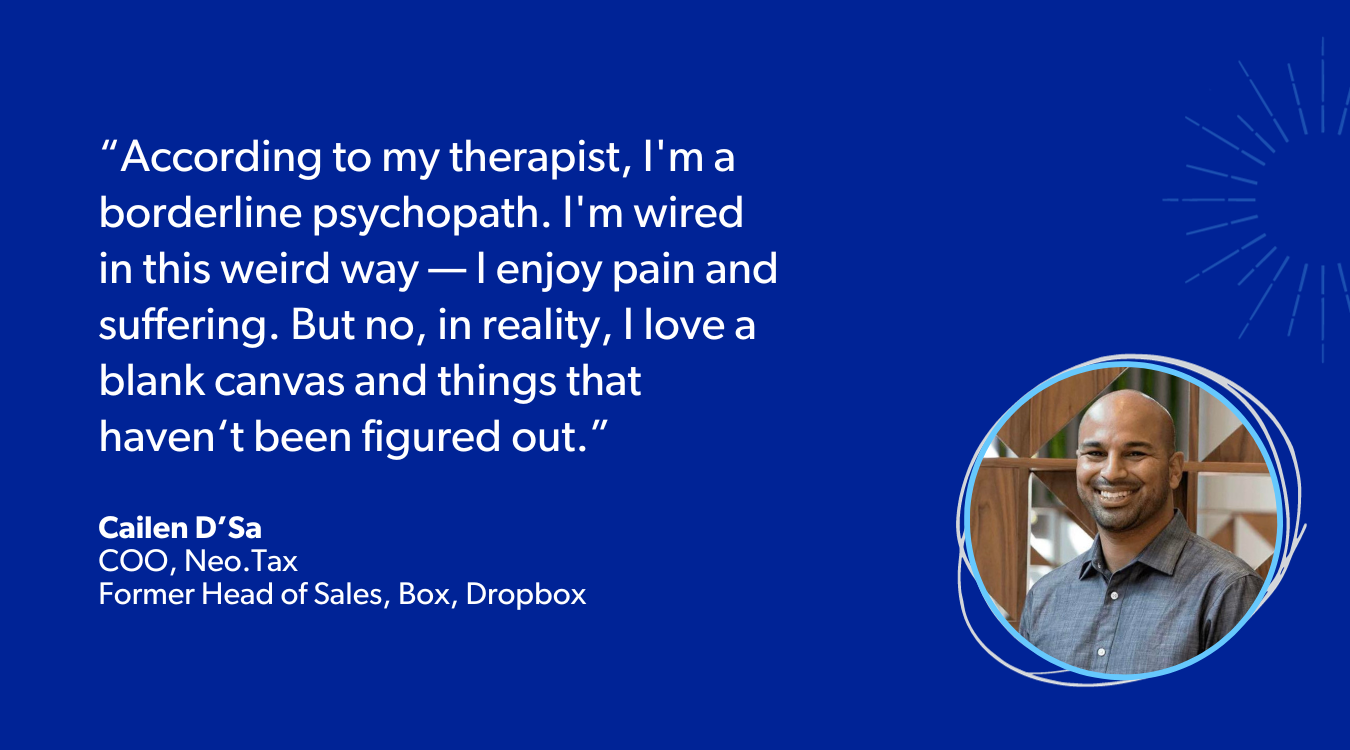
There are weird parallels dating back to my early life. My nickname in high school was CNN, because I always broke news before anyone else. Maybe in another life I should have been a journalist. Whether it’s storytelling, news, or music, I always wanted to be a trendsetter. I also take pride in seeking out non-mainstream companies that you’ve never heard of and turn them into a household name.
Also, because I’m partially a capitalist, I won’t sugarcoat — you have a lot more upside at an early-stage company. Even joining at Seed versus at Series A, you can have orders of magnitude more upside.
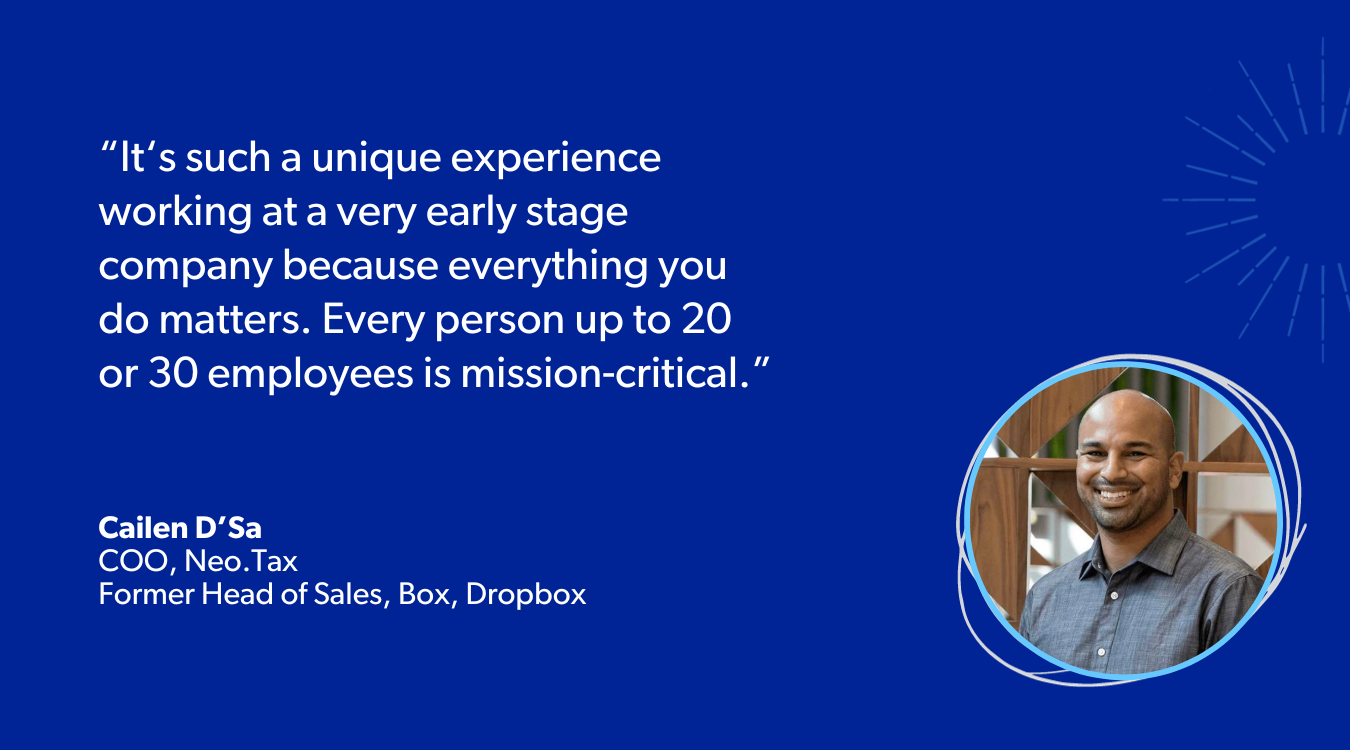
It’s also such a unique experience working at a very early stage company because everything you do matters. You’re not a cog — everyone up to 20 or 30 employees is mission-critical. You help define the company culture and values by virtue of the way you conduct yourself, and the people you hire.
I was coin-operated early in my career. Nowadays, I just want to be a part of something special. The goal: work with great people and build something unique that hopefully evolves into a long term, enduring company one day.
Cailen: It’s been a topsy-turvy road for me. At Box, I wore 50 hats and worked very cross-functionally. I learned about support, engineering, product, etc. Early on in my career at Box, it was mostly all go-to-market and primarily working within that function. With that said, I did work closely with product, engineering, recruiting, and finance on joint ventures. At Dropbox, it was a very different culture, centered around engineering. Revenue wasn’t the end-all, be-all — We felt like if you build a great product, revenue will come.
When I joined Dropbox, the company was worth $25 million. Dropbox raised a Series A pretty early even before I joined and didn’t raise again for a year and a half because we were printing a lot of cash just through the consumer business and self-serve. We also didn’t initially need salespeople. It was very much the early origins of PLG and freemium. Because we were cash flow-positive, when we decided to raise, our valuation unusually went from $25 million to $2 billion overnight in the Series B. Back in 2010, that was unheard of in tech.
The board was like, “Let’s hire some seasoned vets,” so we hired folks across the org because we were in that next phase of growth. My role oddly evolved into a, “Hey, we raised all this capital, now we need to invest in human capital. How do we hire more rock stars to help us grow into this valuation?”
Drew and Arash said, “Hey, you’re one of the only hiring managers here. Why don’t you step into a role to help us on non-EPD recruiting?” I moved into this role where I was a full-blown recruiting leader for two years. It was a weird detour, but it was one of the most rewarding periods of my life. I honed my craft in sourcing and assessing talent. I learned how to build recruiting loops and recruiting plans for various roles and hiring managers. I also learned about compensation philosophy & leveling, immigration, and getting visas for people.
I did that for about two years and then got an opportunity to work at this intersection of recruiting and corp dev, where I worked underneath our head of corp dev, who eventually ended up going on to run corp dev at Airbnb.
Cailen: You nailed it. I went through this retrospective monologue in my head. Also, behind every great executive person or successful individual is a great other half. I’ve been with my wife since college. She’s supported me through all these startup journeys. She would often bail on family trips to spend time with me even though I was working on the weekends.
That’s a critical part of my success — she was taking care of everything behind the scenes. She was my sounding board to debate whether I was making the right move. Being around my dad and my brother, I always knew no career is linear.
One of the things I thought about was, let me just amass as many skills as possible. When I decide to become a founder, none of this stuff will be foreign to me. I don’t have to learn on the job, and especially so when it’s actually mission-critical; so that was always the plan.
Whatever function you’re in, you have to recruit. In hindsight, that’s the most important skill for any exec or founder. And you have to sell to people — you’re selling yourself every single day.
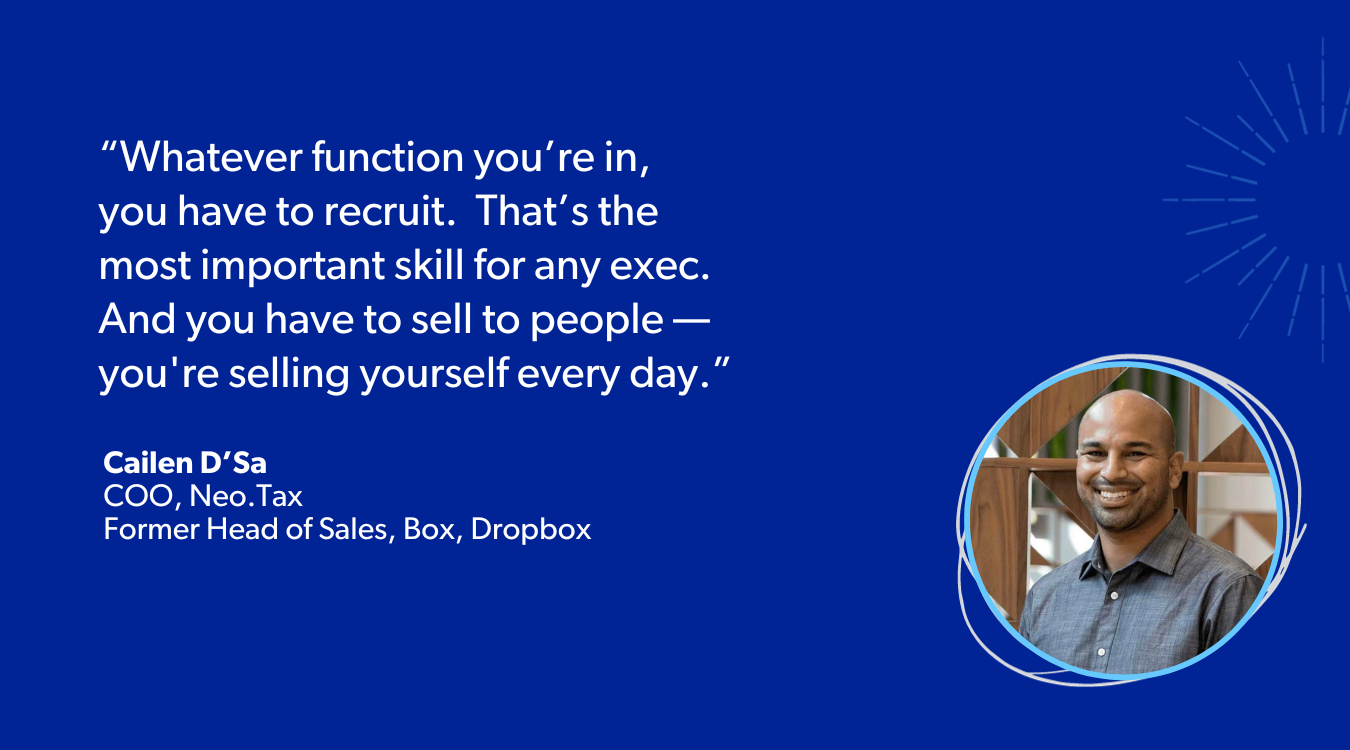
I realized the one thing I really loved is working with customers and things that were revenue-facing. After a three-year detour of doing things that were non-revenue–generating, I moved from Dropbox to Front as their first exec and head of sales.
There was definitely a “re-learning curve”. It’s not always like riding a bike, especially when you jump back to early stage and you have to, for example, stand up Salesforce. There was a lot of Googling involved. For this generation, you’re lucky to have Chat GPT!
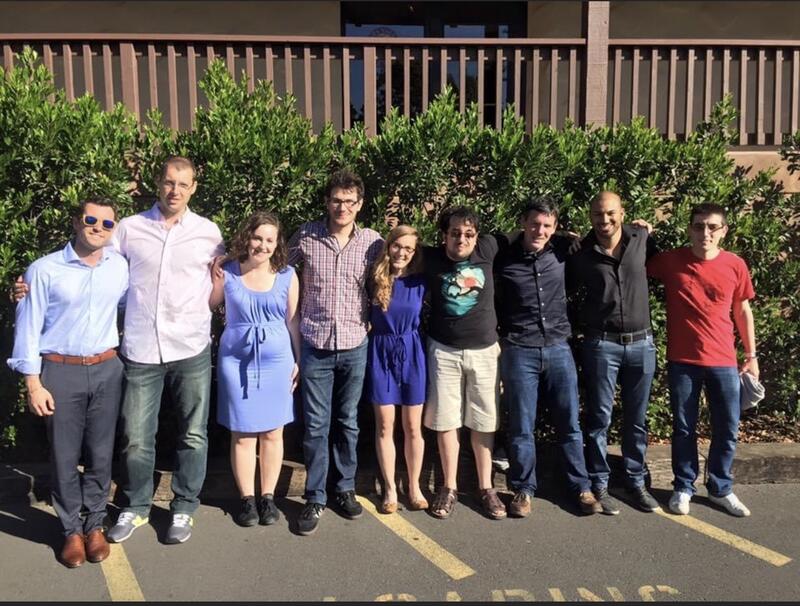
Cailen: I always think from first principles. When I’m thinking about joining an early stage company, the most important thing is do I get along with the founders? Do they have the same long-term views on the business and how they want to build the company? Does the founder share the same values as I do?
My values are different than others. If I want to hire my first two AEs or CSM or a sales engineer, there’s a couple non-negotiables. Number one: are you just a good human? And a little bit of this is a gut feeling where you know within the first five, 10, 15 minutes by the way the person explains things.
I psychoanalyze how they construct their sentences, talk about people, including their ex-employer and boss. I’ll ask some non-traditional questions. For example, “In every friend group, there’s the comedian, there’s the serious person who is the voice of reason, and there are people who are indecisive and will just follow what the other people do. What personality type are you in your friend group?”
I’ll leave it open-ended because I can get a sense of how a person will be in the workplace. I’ll ask situational questions like, “Tell me the last time you lost a deal, why did you lose the deal?” “Who’s fault was it ultimately?” I’ll try to see if they blame product or project engineering or customer success or themselves or the client.
For salespeople, I love to hire the best AE at the second-best company. One of the best AEs I ever hired was the top rep at OneLogin, selling against Okta, who is the market leader. He was somehow winning deals away from Okta with regularity.
I thought, “This guy must be a great salesperson if he had that level of success against an upstart incumbent.” And it proved to be true. I ended up hiring him at two companies, where he was our top performer and was highly respected by employees and customers.
Cailen: Equity is this weird black box, but you have to talk about it since it’s a big component of your compensation. Don’t sell yourself short; understand your worth. There’s so many benchmarking tools out there. I think a lot of VC firms put data out there. Understand where you’re coming in and try to negotiate as much as you can for that. If you can trade cash for equity, that’s important. And just make sure you’re getting a fair deal.
The number-one question you should ask is: How many shares are outstanding? If the company does not tell you how many shares are outstanding, run for the hills. Do not join because they have something to hide there or lack the value of transparency with employees.
Also, make sure you understand the ins and outs of tax benefits. If you’re joining an early-stage company, learn about what qualified small business stock is and learn about early exercise and post termination exercise windows.
All and all, at an early-stage company, you’re probably getting less cash than you get at a big company, but you’re trading that for some equity. It’s a lottery ticket essentially. It’s important to understand that 99% of those lottery tickets are not going to cash, but in the 1% chance that they do, it could be a huge windfall.
Read more
3 steps for equity success for early-stage startup founders
Building a cult-like following is P0 for former Segment marketing leader
Kickstarter to global ascent: Peloton’s first biz dev leader on building from the ground up